| Conferences > Microphysiological Systems 2023: A Deep Dive into Technologies & Applications > Keynote Speakers |
| Register | Login |
Jason EkertHead US Discovery Translational Technology, UCB Pharma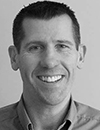 Dr. Jason Ekert is Head of US Discovery Translational Technology at UCB. He is responsible for the planning and directing of research, as well as seeking partnerships with research institutions and companies to remain on the leading edge of drug discovery. He’s currently the past chair for the IQ-MPS affiliate and co-leads the regulatory sub-group for the IQ-MPS affiliate. Before joining UCB he was Senior Director, GSK Fellow and Head of the Complex In Vitro Models (CIVM) group at GlaxoSmithKline. He was responsible for an integrated enterprise strategy for R&D applications of complex human-relevant and translatable complex in vitro models (eg Organoids, Microphysiological systems and bioprinting). He worked at Janssen in biotherapeutic drug discovery. Jason received his PhD from Adelaide University. Post-doctoral training was performed at University of California, Davis and Coriell Institute for Medical Research. |
Mandy EschProject Leader, National Institute of Standards and Technology (NIST)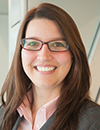 Mandy B. Esch is a project leader in the Microsystems and Nanotechnology Division of the National Institute of Standards and Technology. She received a Diploma (equivalent to the American M.S. degree) in Biology and a Dr. rer. nat. (equivalent to the American Ph.D. degree) in Biotechnology from the Julius Maximilians University in Würzburg, Germany. During her PhD research she developed paper-based microfluidics and microfluidic biosensors for the detection of pathogens. In 2001, Dr. Esch joined the Cornell Nanoscale Science and Technology Facility as life sciences liaison. In 2007, she joined the Department of Biomedical Engineering at Cornell University as a Postdoctoral Research Associate. While there, she developed patents for cell culture on a porous 3D surface and for a multi-organ microphysiological system (MPS). She was part of the team that in 2015 received the Lush Science Prize for designing multi-organ fluidic cell culture systems. From 2015 to 2016 Dr. Esch spent a year as Assistant Professor at Syracuse University (Department of Biomedical and Chemical Engineering), where she taught nanobiotechnology. In August 2016 Dr. Esch moved to NIST, where she is focusing on integrating sensors with tissues-on-chips and multi-organ microphysiological systems. |
James HickmanProfessor, Nanoscience Technology, Chemistry, Biomolecular Science and Electrical Engineering, University of Central Florida; Chief Scientist, Hesperos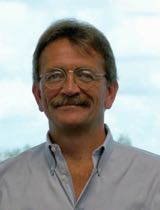 James J. Hickman is the Founding Director of the NanoScience Technology Center and a Professor of Nanoscience Technology, Chemistry, Biomolecular Science, Biomedical Engineering, Material Science and Electrical Engineering at the University of Central Florida. Previously, he held the position of the Hunter Endowed Chair in the Bioengineering Department at Clemson University. Dr. Hickman has a Ph.D. from the Massachusetts Institute of Technology in Chemistry. For the past thirty years, he has been studying the interaction of biological species with modified surfaces, first in industry and in the latter years in academia. While in industry he established one of the first bioelectronics labs in the country that focused on cell-based sensors and their integration with electronic devices and MEMS devices. He is interested in creating hybrid systems for biosensor and biological computation applications and the creation of functional in vitro systems for human body-on-a-chip applications. He has worked at NSF and DARPA in the area of biological computation. He is also the founder and current Chief Scientist of a biotechnology company, Hesperos, that is focusing on cell-based systems for drug discovery and toxicity. He has 166 publications and 20 book chapters, in addition to 34 issued patents out of 50 total patent applications. He was elected to the Board of Directors of the American Institute for Medical and Biological Engineering (AIMBE) for 2 consecutive terms, the premier society for Biomedical Engineering of which he is a Fellow. He is also a Fellow of the American Vacuum Society (AVS) and National Academy of Inventors (NAI) as well as BioFlorida’s Researcher of the Year (2022). Dr. Hickman along with Dr. Michael Shuler, won the Lush Prize, in the Science Category, which Supports Animal Free Testing in 2015. |
Reyk HorlandCEO, TissUse GmbH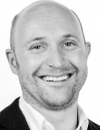 Dr. Reyk Horland was appointed CEO of TissUse in October 2020 following 8 years as Head of Business Development. His business network includes leading pharmaceutical and consumer product companies as well as regulatory authorities and outstanding research institutions worldwide. Prior to TissUse, Dr. Horland studied Biotechnology at the Technische Universität Berlin and specialized in Medical Biotechnology. During his academic career he was involved in various tissue engineering programs, all with a focus on the commercialization of the respective products. |
Gretchen MahlerProfessor of Biomedical Engineering, Binghamton University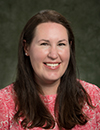 Gretchen Mahler is a Professor in the Biomedical Engineering Department in the Watson College of Engineering at Binghamton University, part of the State University of New York (SUNY) system. She also serves as the Interim Vice Provost and Dean of the Graduate School. Gretchen earned her BS in Chemical Engineering from the University of Massachusetts Amherst in 2002. She completed her honors thesis with Dr. Susan Roberts. Dr. Mahler completed her PhD in Chemical and Biomolecular Engineering with Dr. Michael Shuler at Cornell University in 2008. In 2011, Gretchen completed a postdoctoral fellowship at Cornell University in the Biomedical Engineering Department with Dr. Jonathan Butcher. Dr. Mahler joined the Biomedical Engineering Department at Binghamton University in 2011. Her research interests include the development, characterization and validation of cell culture organ and tissue microfluidic models. Her current research includes the development of barrier tissue organs on a chip, including the GI tract, liver, kidney, and vascular and valvular endothelium, for mechanobiological and toxicity testing. |
Matthias von HerrathVice President and Senior Medical Officer, Novo Nordisk, Professor, La Jolla Institute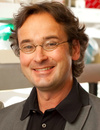 Dr. Matthias von Herrath is committed to clinical translation of immune-based interventions in autoimmune and metabolic diseases, the latter in particular being an exciting emerging field. His expertise and main strength is working at the interface of experimental research to interpret and refine early phase I/II clinical trials in order to optimize strategies for phase 3 trials and drug approval. This comprises translation from various animal models to human interventions, optimization of immunotherapies and their relative ranking, assessment of combination therapies, development of biomarkers as primary or secondary outcomes, induction of antigen specific tolerance in autoimmunity, regulatory cells and clinical T cell assays. In order to be better able to pursue his goal of clinical translation, Dr. von Herrath accepted the position of Vice President and Head of Novo Nordisk’s diabetes R&D Center in Seattle in autumn of 2011. At Novo Nordisk, he built the diabetes translational unit, which is based on less conventional and innovative design. In addition, he took on the task of finding new treatments to diabetic kidney disease in 2017. In 2018 he moved to the CMO office as many of the interventions are now at a later developmental stage and the position allows bridging between patient needs and trial design, biomarkers and basic mechanistic insight. |




